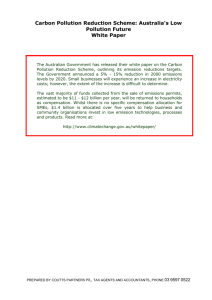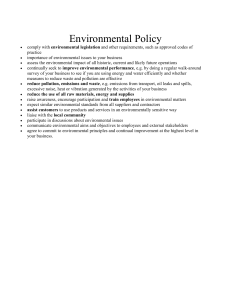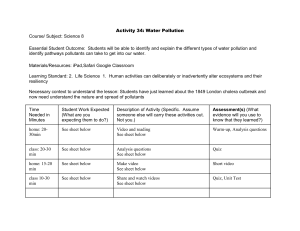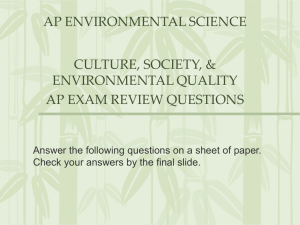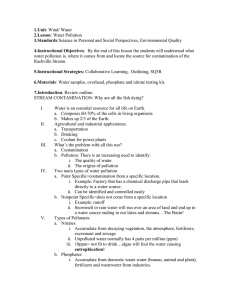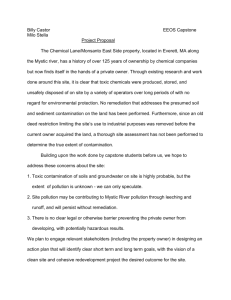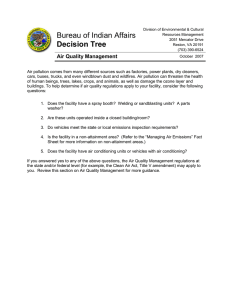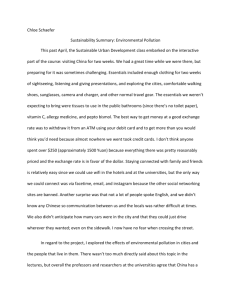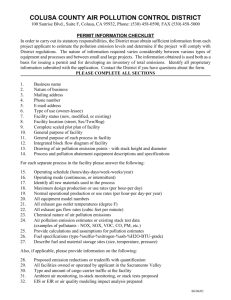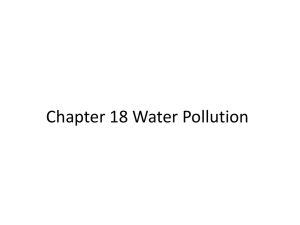Environmental Regulation of Industry in the United Kingdom
advertisement
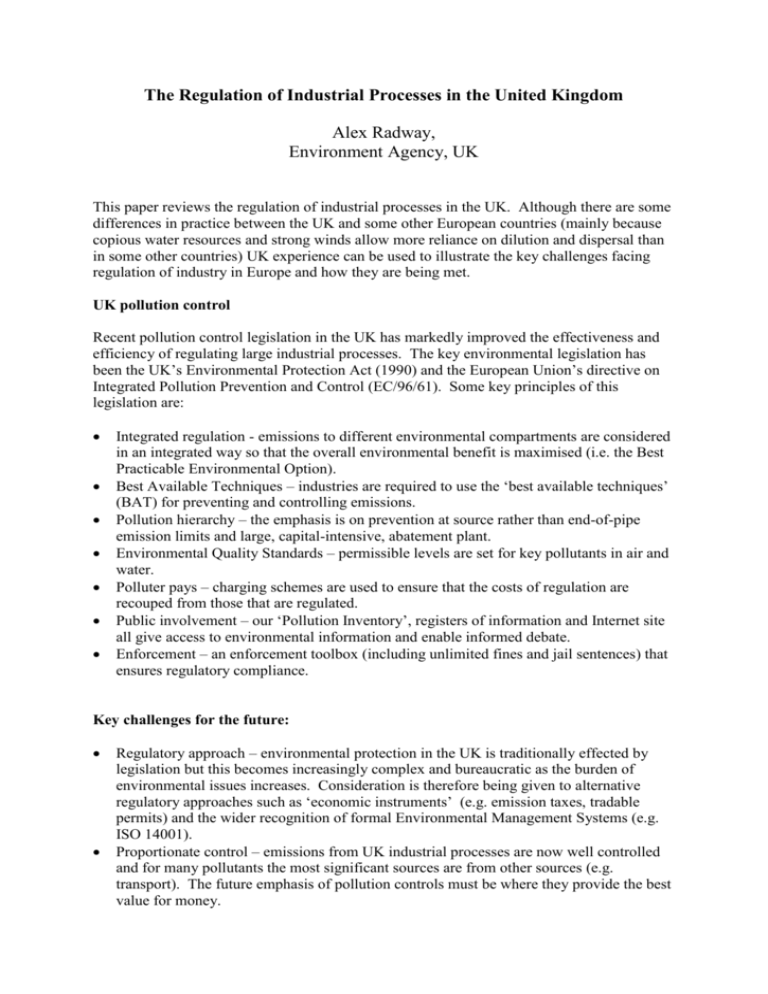
The Regulation of Industrial Processes in the United Kingdom Alex Radway, Environment Agency, UK This paper reviews the regulation of industrial processes in the UK. Although there are some differences in practice between the UK and some other European countries (mainly because copious water resources and strong winds allow more reliance on dilution and dispersal than in some other countries) UK experience can be used to illustrate the key challenges facing regulation of industry in Europe and how they are being met. UK pollution control Recent pollution control legislation in the UK has markedly improved the effectiveness and efficiency of regulating large industrial processes. The key environmental legislation has been the UK’s Environmental Protection Act (1990) and the European Union’s directive on Integrated Pollution Prevention and Control (EC/96/61). Some key principles of this legislation are: Integrated regulation - emissions to different environmental compartments are considered in an integrated way so that the overall environmental benefit is maximised (i.e. the Best Practicable Environmental Option). Best Available Techniques – industries are required to use the ‘best available techniques’ (BAT) for preventing and controlling emissions. Pollution hierarchy – the emphasis is on prevention at source rather than end-of-pipe emission limits and large, capital-intensive, abatement plant. Environmental Quality Standards – permissible levels are set for key pollutants in air and water. Polluter pays – charging schemes are used to ensure that the costs of regulation are recouped from those that are regulated. Public involvement – our ‘Pollution Inventory’, registers of information and Internet site all give access to environmental information and enable informed debate. Enforcement – an enforcement toolbox (including unlimited fines and jail sentences) that ensures regulatory compliance. Key challenges for the future: Regulatory approach – environmental protection in the UK is traditionally effected by legislation but this becomes increasingly complex and bureaucratic as the burden of environmental issues increases. Consideration is therefore being given to alternative regulatory approaches such as ‘economic instruments’ (e.g. emission taxes, tradable permits) and the wider recognition of formal Environmental Management Systems (e.g. ISO 14001). Proportionate control – emissions from UK industrial processes are now well controlled and for many pollutants the most significant sources are from other sources (e.g. transport). The future emphasis of pollution controls must be where they provide the best value for money. Land contamination – as the cradle of the industrial revolution, parts of the UK have seen industrial activity for over 150 years. This has left a legacy of long-term contamination of land and groundwater that will be difficult and expensive to rectify. Sustainable development – climate change is of particular interest to an island like the UK since sea level changes and flooding have very immediate effects. A key issue is how environmental regulation of industry can be better linked to the broader objectives and longer time horizons of sustainable development. AR/RM (1st October 2002)
